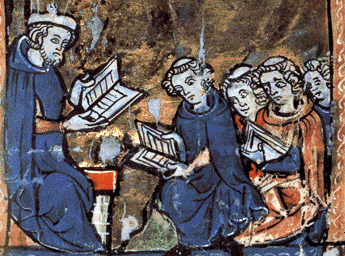Hrólfs saga kraka — chs 34-35 §35.1
hann ‘he’
nom. m. sg.
hann (pron.; °gen. hans, dat. honum; f. hon, gen. hennar, acc. hana): he, she, it, they, them...
Closehonum ‘him’
dat. m. sg.
hann (pron.; °gen. hans, dat. honum; f. hon, gen. hennar, acc. hana): he, she, it, they, them...
Closedýr ‘beast’
nom. sg.
1. dýr (noun n.; °-s (spec.: dyʀiɴs KonrA 66⁴, etc., cf. Seip 1955 188-189); -): animal
Closevetr ‘winters’
acc. pl.
vetr (noun m.; °vetrar/vetrs(HómHauksb³ 173²³), dat. vetri; vetr): winter
Close‘Ok hefr vængi á bakinu ok flýgr jafnan. Tvau haust hefr þat nú hingat vitjat ok gǫrt mikinn skaða. Á þat bíta ekki vápn, en kappar konungs koma ekki heim, þeir sem eru einna mestir.’
Teaching text: text section
Here you can see a piece of text. Clicking on words in the text will show you the dictionary headword, grammatical information and notes on how the word is used.
You should pay careful attention to the explanation of each word. You can test your knowledge using the translation and other exercises.
In some cases there may be audio of a modern Icelandic rendition of the text on this page.
